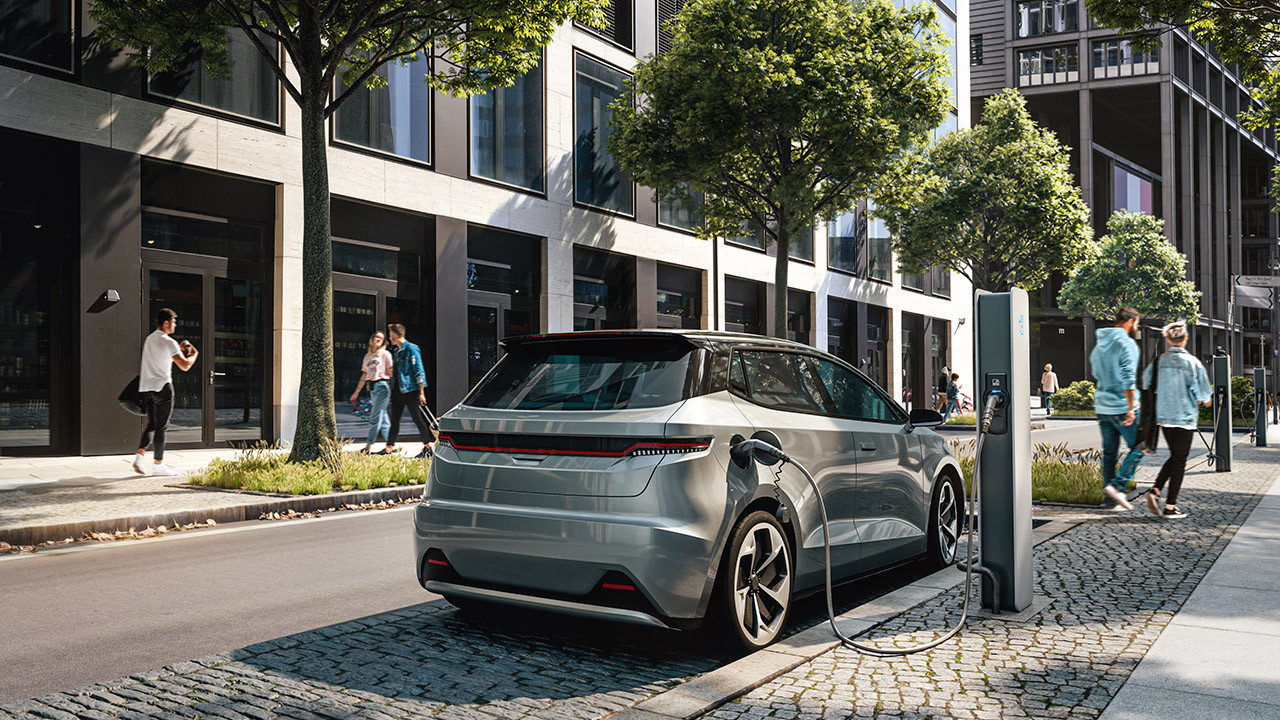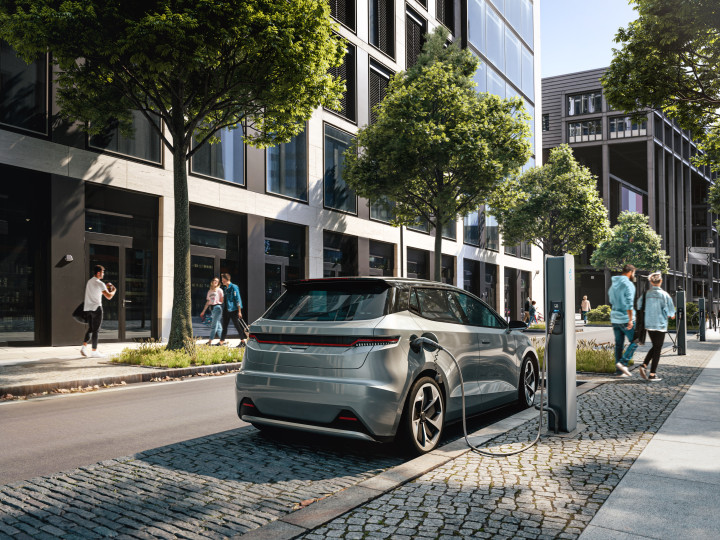Stuttgart, Germany – Charging their electric car quickly, conveniently, and most importantly, anywhere: for many drivers of electric cars around the world, this is often more of a wish than a reality. Along with range and costs, charging is one of car drivers’ biggest concerns, as a study by the German Association of Energy and Water Industries (BDEW) shows. Bosch wants to remedy this with its proprietary platform with better access to charging infrastructure: offering more than one million charging stations on four continents. This now makes the technology company’s network one of the biggest in the world. “Bosch’s declared aim is to make charging stations widely accessible and put an end to the chaos caused by different charging apps,” says Marco Zehe, president of Bosch’s Electrified Motion division.
Users can access Bosch’s charging services with a smartphone app, and Bosch also offers its solutions for charging electric cars to vehicle manufacturers and companies. These services can be flexibly and easily integrated into a manufacturer’s look and feel and infotainment system, both functionally and visually, so that the driving and charging experience retain the manufacturer’s individual look and fit into its brand world. It takes just a few clicks to charge and pay – with full cost transparency. The charging stations currently included can be found across Europe, North America, Asia, and Australia. At present, there are around 800,000 charging stations in Europe alone and another 130,000 in North America; by the end of 2024, there will be some 200,000 across Australia, New Zealand, and Asia – and the number is growing all the time. “By integrating over one million charging stations into one platform, we’re making it much easier for drivers of electric cars to search for and find them – all over the world. In this way, we’re making electromobility more and more suitable for everyday use by the general public,” Zehe says.
By 2030, Bosch expects one in three newly registered vehicles worldwide to be purely electric; by 2035, it will be one in two. “We anticipate a huge surge in growth for the charging services business over the course of the decade – because as the number of electric vehicles grows, so does the need for straightforward and comprehensive charging solutions” Zehe says. By the end of the decade, Bosch is expecting its charging solutions business to expand by more than 50 percent each year.
Charge My EV: the Bosch app is now available in Hungary
The Charge My EV app is now just a single click away and available for download in Hungary on Google Play and the App Store. With a quick and simple registration, you can access a network of charging points displayed in the app using a single account. The app features a map and filtering options, and navigation displayed when you click on a selected location.
To refine your search, you can use filters such as service station accessibility, connection type, charging capacity, operator, and opening hours. By clicking on the selected charging point, detailed information is also available including connection type, usage restrictions, authentication methods, individual tariffs, energy type, and the details of the last successful charging session.
Starting a charge is quick and seamless: after authenticating via the app or an RFID card, payments are processed automatically using your stored payment method.
Zita Hella Varga
Phone: +36 70 667-6374
The Bosch Group is a leading global supplier of technology and services. It employs roughly 429,000 associates worldwide (as of December 31, 2023). The company generated sales of 91.6 billion euros in 2023. Its operations are divided into four business sectors: Mobility, Industrial Technology, Consumer Goods, and Energy and Building Technology. With its business activities, the company aims to use technology to help shape universal trends such as automation, electrification, digitalization, connectivity, and an orientation to sustainability. In this context, Bosch’s broad diversification across regions and industries strengthens its innovativeness and robustness. Bosch uses its proven expertise in sensor technology, software, and services to offer customers cross-domain solutions from a single source. It also applies its expertise in connectivity and artificial intelligence in order to develop and manufacture user-friendly, sustainable products. With technology that is “Invented for life,” Bosch wants to help improve quality of life and conserve natural resources. The Bosch Group comprises Robert Bosch GmbH and its roughly 470 subsidiary and regional companies in over 60 countries. Including sales and service partners, Bosch’s global manufacturing, engineering, and sales network covers nearly every country in the world. Bosch’s innovative strength is key to the company’s further development. At 136 locations across the globe, Bosch employs some 90,000 associates in research and development, of which nearly 48,000 are software engineers.
The company was set up in Stuttgart in 1886 by Robert Bosch (1861–1942) as “Workshop for Precision Mechanics and Electrical Engineering.” The special ownership structure of Robert Bosch GmbH guarantees the entrepreneurial freedom of the Bosch Group, making it possible for the company to plan over the long term and to undertake significant upfront investments in the safeguarding of its future. Ninety-four percent of the share capital of Robert Bosch GmbH is held by Robert Bosch Stiftung GmbH, a charitable foundation. The remaining shares are held by Robert Bosch GmbH and by a corporation owned by the Bosch family. The majority of voting rights are held by Robert Bosch Industrietreuhand KG. It is entrusted with the task of safeguarding the company’s long-term existence and in particular its financial independence – in line with the mission handed down in the will of the company’s founder, Robert Bosch.
Additional information is available online at www.bosch.hu, iot.boschblog.hu, www.bosch.com, www.iot.bosch.com, www.bosch-press.com, www.twitter.com/BoschPresse



